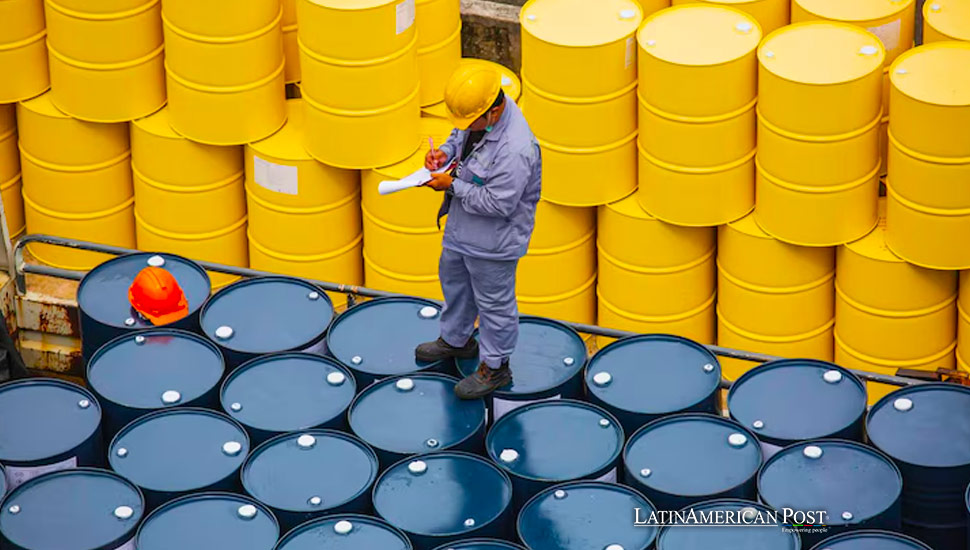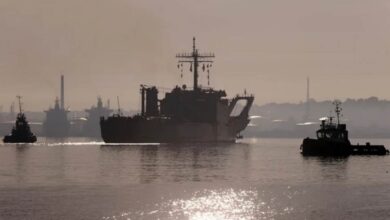Venezuela’s Covert Oil Shipments Sustain Cuba Amid Fuel Crisis

Venezuela’s state oil company, PDVSA, has used off-radar tankers to deliver crucial oil supplies to Cuba, navigating U.S. sanctions and operational challenges. The covert operations highlight the ongoing alliance between the two countries amid growing energy needs
In a strategic move to support its closest political ally, Cuba, Venezuela’s state oil company, PDVSA, has begun using tankers that navigate off the radar. This shift comes as a dwindling fleet of state-owned vessels, traditionally covering this route, has been impacted by delayed maintenance and emerging new supply routes. Reuters reports that documents and ship monitoring services have detailed these operations, underscoring the lengths Venezuela will go to ensure Cuba receives desperately needed crude oil and fuel.
For over a decade, Venezuela and Cuba have exclusively relied on their own tankers to transport oil between them. However, with some ships out of service due to maintenance issues and Mexico emerging as a new supplier to Cuba, both countries have had to rethink their logistics to keep the island nation fueled.
Dark Fleet Operations
Many tanker fleets owned by Venezuela and Cuba are under U.S. sanctions, limiting their operational capabilities. As a result, PDVSA has turned to using third-party operated vessels, often called the ‘dark fleet.’ These ships, which are not easily traceable due to various reasons, typically lack Western insurance and employ tactics such as sending false location signals to disguise their movements. The ‘dark fleet’ plays a crucial role in these covert operations, as it allows Venezuela to continue its support for Cuba while avoiding detection and potential penalties from U.S. authorities.
In June, PDVSA started co-loading crude and fuel oil cargoes that would first deliver a portion in Cuban waters before continuing to Asia to discharge the remaining volume. These vessels spoof their signals, making it appear as though they are elsewhere in the Caribbean while discharging in Cuba, often via ship-to-ship transfers. TankerTrackers.com and satellite images from Planet Labs, reviewed by Reuters, confirm these deceptive practices.
One such vessel, the Panama-flagged Neptune 6, was observed last week near Cuba’s Nipe Bay transferring Venezuelan heavy crude and fuel oil to the Cuba-flagged ship Esperanza. Despite its transponder signaling a location north of Curaçao since late May, data from LSEG indicates its actual activities near Cuba.
PDVSA and the foreign ministries of Venezuela and Cuba have not commented on these operations, and it remains to be seen if using third-party vessels is a temporary measure or a longer-term strategy. The potential consequences of these covert operations being exposed, such as increased scrutiny from the U.S. and potential diplomatic tensions, are factors that need to be considered in the broader geopolitical context.
Boosting Oil Supply Amid Crisis
The additional vessels are expected to help increase Venezuela’s oil supply to Cuba. So far, this year averages 27,000 barrels per day (bpd), compared to 51,500 bpd in 2023. This support is crucial as demand for electricity generated by oil-fired plants in Cuba spikes during the hot summer months.
Cuba has faced routine blackouts due to limited imported supplies and logistical issues affecting domestic fuel distribution to its aging power plants. This energy crisis, which has been exacerbated by a combination of factors including infrastructure challenges and a lack of diversified energy sources, has made the need for reliable oil shipments even more critical. Cuban energy officials have indicated that maintenance efforts are underway to prepare power-generating plants for the high-demand summer season, hoping to reduce the frequency of blackouts.
A significant setback for Cuba’s energy infrastructure occurred with the devastating fire at the island’s most crucial oil terminal in Matanzas, which destroyed part of its oil storage capacity. This incident has forced suppliers to transfer cargo to other ships used for floating storage by Cuba, complicating logistics further.
In May, Mexico’s state oil company, Pemex, resumed oil shipments to Cuba after a three-month pause, utilizing the same vessels previously used to ship oil from Venezuela. This move, which was seen as a significant step in supporting Cuba’s energy needs, underscores the ongoing efforts within the region to maintain a stable energy supply. Despite the numerous challenges, this collaboration between Mexico, Venezuela, and Cuba underscores the ongoing efforts to support Cuba’s energy needs.
The Impact of U.S. Sanctions
The covert operations of Venezuela’s oil shipments to Cuba highlight the impact of U.S. sanctions on both countries. These sanctions, which were imposed due to political and economic disagreements, have restricted the movement of state-owned fleets and necessitated creative solutions to maintain the flow of vital resources. The specific details of these sanctions, such as the types of goods and services affected, can provide a deeper understanding of the situation.
Using the dark fleet and signal spoofing directly responds to the operational limitations imposed by sanctions. These tactics allow Venezuela to continue its support for Cuba while avoiding detection and potential penalties from U.S. authorities.
However, these covert activities come with risks. The lack of Western insurance and the potential for increased scrutiny can lead to operational and financial challenges. Moreover, the use of third-party vessels and the practice of signal spoofing can have environmental and safety implications. The need to navigate these risks demonstrates the resilience and determination of both nations to sustain their alliance and support each other amid external pressures.
Latin American Context
The relationship between Venezuela and Cuba serves as a microcosm of the broader political and economic dynamics in Latin America. Both countries have historically maintained close ties rooted in shared ideological foundations and mutual support against U.S. regional influence, reflecting the unique fabric of the region.
Cuba’s reliance on Venezuelan oil has been a cornerstone of this alliance. The ongoing fuel crisis in Cuba, exacerbated by infrastructure challenges and logistical issues, underscores the importance of these oil shipments. The collaborative efforts to ensure the continued flow of resources highlight the interdependence of Latin American nations in the face of external adversities.
Moreover, Mexico’s emergence as an additional supplier to Cuba reflects the evolving landscape of regional cooperation. Mexico’s involvement signifies a broader willingness within Latin America to support each other through economic and logistical partnerships, even as geopolitical tensions persist.
Future Prospects
Looking ahead, the future of Venezuela’s oil shipments to Cuba will likely involve a mix of creative logistical solutions and covert operations. The ongoing maintenance and operational issues of state-owned fleets, coupled with the constraints of U.S. sanctions, will necessitate adaptive strategies to sustain the flow of vital resources.
Cuba’s immediate focus remains on stabilizing its energy infrastructure and ensuring a reliable fuel supply. The steadfast support from Venezuela and Mexico, demonstrated through their ongoing collaboration, will be instrumental in achieving this goal, especially as the island nation grapples with the challenges of blackouts and energy shortages.
Also read: Venezuela launches game development course to boost tech education
The covert oil shipments from Venezuela to Cuba, as reported by Reuters, highlight the resilience and ingenuity of these nations in maintaining their alliance and supporting each other amid significant challenges. The use of off-radar tankers and the collaboration with third-party vessels underscore the lengths Venezuela will go to ensure Cuba’s energy needs are met. As Latin America continues to navigate complex geopolitical landscapes, cooperation and mutual support remain a defining characteristic of the region’s approach to overcoming adversity. These covert operations also raise questions about the future of regional energy cooperation and the potential for further collaboration among Latin American nations.





